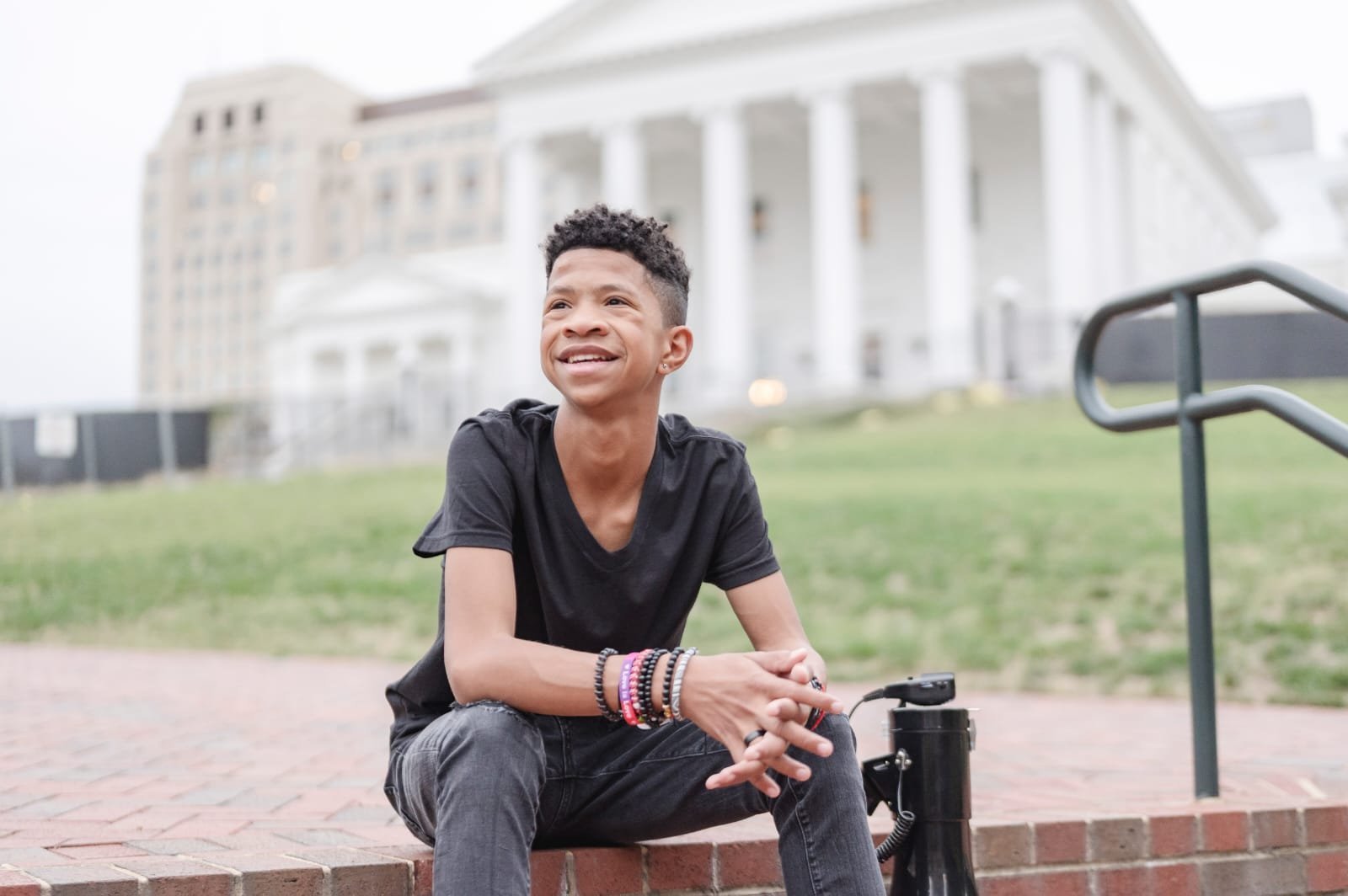VOLUME 17, ISSUE 4
February 2023
Student Highlight: Elijah Lee
By Amanda Campbell and Anna Fong
Elijah Lee is a freshman at Maggie Walker. / Photo courtesy of Elijah Lee.
From leading marches to preaching sermons, Elijah Lee does it all. Lee is only a freshman at MLWGS and a diligent youth activist, focusing on advocating for child abuse victims. Known as “Incredible Elijah Lee,” he has been featured on Marvel’s Hero Project and has been on the Kelly Clarkson Show multiple times. Lee was also recognized with many awards for his work, including the Youth Civic Services Award from a branch of the NAACP.
Lee accredits his interest in activism to a young girl whom he met in elementary school. He recounts, “In first grade, a friend of mine told me about her abuse, and this was obviously really impactful for me.” From then on, Lee began his work in advocating for child abuse victims. At 10 years old, Lee led his first child abuse awareness march, which has since become an annual occurance. Lee was inspired by American activists such as Angela Davis, Huey Newton, and Assata Shakur. He says, “They showed me that when you see a problem in the world, when you see something that’s really messed up, you have the ability to change it.” After his very first march, Lee began meeting with representatives, lobbying at the Capitol, and canvassing.
As another facet of his activism, Lee has founded a nonprofit organization called “Hear Our Voices.” Hear Our Voices specializes in giving young people the space and means to initiate change. Lee says that although he was fortunate to have a supportive and well-educated family, many young people do not have access to similar resources. The goal of his organization is that if a young person wants to make change, they have the means to do so. All they have to do is go to Hear Our Voices, which will provide them with funding, connections, and additional resources.
Lee explains that society can also do more to improve the issues going on in the world. He describes child abuse in particular as a thing people refrain from discussing because it is unclear what more can be done about it. As with any issue, discussing it– even when doing so is tough– is crucial for change to happen. In terms of how schools can do more to intervene in situations of child abuse, Lee suggests giving teachers training and “resources they need to be able to talk about child abuse and to be able to help young people.” To turn his ideas into reality, he worked on a bill so that teachers would have training to better understand trauma.
Between visits to the Capitol and speaking engagements, schoolwork can be the last thing on Lee’s mind. Nevertheless, he has managed to maintain a good balance in his professional and student life, with the help of copious amounts of caffeine. Lee has formed great relationships with his teachers, and when he has to miss a few days of school, he says, “I think they’ve been some of the most helpful people I can ever imagine them to be.” Even with the substantial workload, MLWGS has allowed Lee’s work to prosper. Lee says, “Maggie Walker has 100% allowed me to do more work, being in the heart of Richmond.” Lee cites not only the location but also the community, as advancing his work: “It’s one of the most supportive schools I’ve ever found.”
Lee encourages everyone to become more involved in their community. Although the world of activism can be intimidating, Lee lays out a simple process to start: “Find an issue that you’re passionate about, and then from there, find something that makes you happy.” He believes that the key is to enjoy the work, as every effort– no matter how big or small– contributes to a larger picture. In the words of Lee: “Heck, if you know how to run an Instagram page, you’re needed.”

